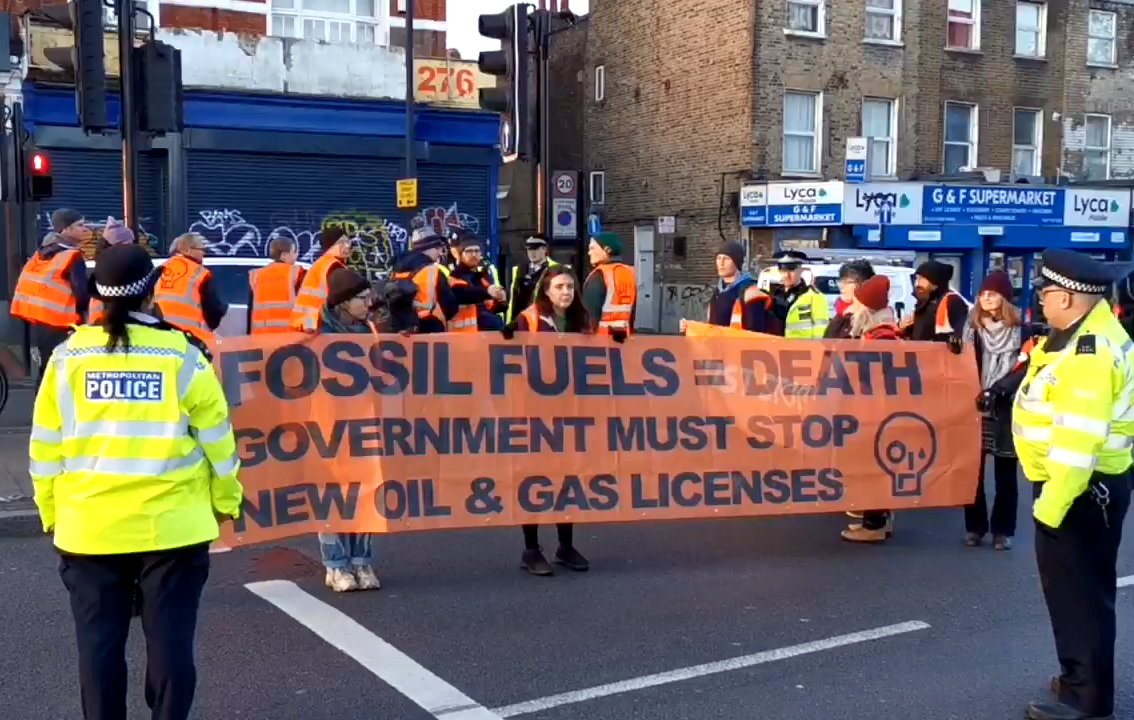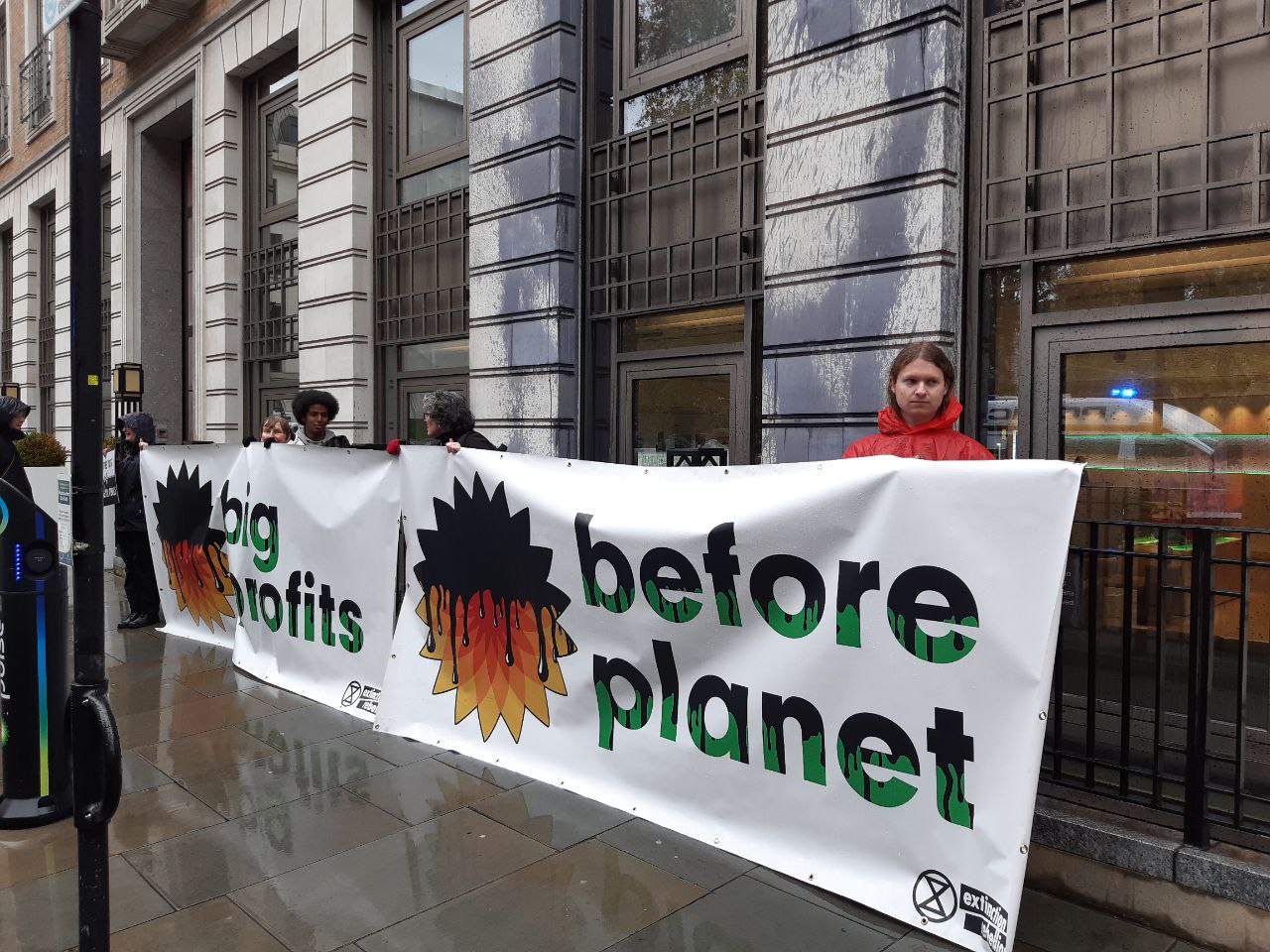‘The Writing Is on the Wall for Fossil Fuels’: Activist Investors Sue Shell Board Over Climate Failures

\Original article by JAKE JOHNSON Feb 09, 2023 republished from Common Dreams under Creative Commons (CC BY-NC-ND 3.0). Feel free to republish and share widely.
“The shift to a low-carbon economy is not just inevitable, it’s already happening. Yet the board is persisting with a transition strategy that is fundamentally flawed.”
A group of activist investors sued Shell’s board of directors on Wednesday for failing to “deliver the reduction in emissions that is needed to keep global climate goals within reach.”
ClientEarth, an environmental law charity and institutional investor in Shell, described the case as the first time a company board is facing a shareholder lawsuit for inadequately preparing to transition away from fossil fuels.
“Shell may be making record profits now due to the turmoil of the global energy market, but the writing is on the wall for fossil fuels long term,” Paul Benson, a senior lawyer at ClientEarth, said in a statement. “The shift to a low-carbon economy is not just inevitable, it’s already happening. Yet the board is persisting with a transition strategy that is fundamentally flawed, leaving the company seriously exposed to the risks that climate change poses to Shell’s future success—despite the board’s legal duty to manage those risks.”
The lawsuit, which is backed by large institutional investors that collectively hold 12 million shares of Shell, alleges that the oil giant’s 11 directors are violating the Companies Act, a U.K. law that requires corporate boards to “promote the success” of the business.
By failing to sufficiently manage climate risks and implement “an energy transition strategy that aligns with the Paris Agreement,” Shell is flouting its legal obligations, the lawsuit contends.
“Shell’s Board on the other hand maintains that its ‘Energy Transition Strategy’—including its plan to be a net-zero emissions business by 2050—is consistent with the 1.5°C temperature goal of the Paris Agreement,” ClientEarth notes. “It also claims that its plan to halve emissions from its global operations by 2030 is ‘industry-leading,’ however this covers less than 10% of its overall emissions.”
“It is in the best interests of the company, its employees, and its shareholders—as well as the planet—for Shell to reduce its emissions harder and faster than the board is currently planning.”
ClientEarth and its backers are asking the High Court of Justice in London to force Shell’s board to “adopt a strategy to manage climate risk in line with its duties under the Companies Act” and in compliance with a 2021 Dutch court ruling ordering the oil giant to cut its total carbon emissions by 45% by 2030.
“Long term, it is in the best interests of the company, its employees, and its shareholders—as well as the planet—for Shell to reduce its emissions harder and faster than the board is currently planning,” Benson said.
Jacqueline Amy Jackson, the head of responsible investment at London CIV—one of the institutional backers of ClientEarth’s lawsuit—said that “we do not believe the board has adopted a reasonable or effective strategy to manage the risks associated with climate change affecting Shell.”
“In our view,” Jackson added, “a board of directors of a high-emitting company has a fiduciary duty to manage climate risk, and in so doing, consider the impacts of its decisions on climate change, and to reduce its contribution to it.”
Shell said in response that ClientEarth’s suit “has no merit.”
ClientEarth filed its complaint a week after Shell announced that its profits doubled in 2022, surging to a record $40 billion as households across Europe and around the world struggled with high energy costs. The company said it returned $26 billion to shareholders last year through dividends and stock buybacks.
Earlier this month, the advocacy group Global Witness filed a complaint with the U.S. Securities and Exchange Commission accusing Shell of “lumping together some of its gas-related investments with its spending on renewables to inflate its overall investment in renewable sources of energy,” misleading investors and authorities.
“Shell’s so-called renewable and energy solutions category is pure fiction,” said Zorka Milin, a senior adviser at Global Witness. “The company is living in fantasy land if it thinks fossil gas has any place in the much-needed energy transition. Shell’s business model has always been, and continues to be, overwhelmingly based on climate-polluting fossil fuels.”
Shell is also facing lawsuits from nearly 14,000 Nigerians whose communities have been devastated by the company’s pollution and oil spills.
\Original article by JAKE JOHNSON Feb 09, 2023 republished from Common Dreams under Creative Commons (CC BY-NC-ND 3.0). Feel free to republish and share widely.


